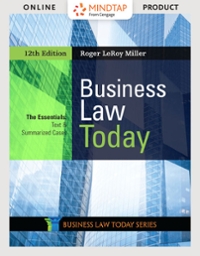Question
What is Economics? The Merriam-Webster dictionary states that Economics is the analysis of the production, distribution, and consumption of goods and services. But what does
What is Economics? The Merriam-Webster dictionary states that Economics is
"the analysis of the production, distribution, and consumption of goods and
services." But what does this mean? An Economics teacher once suggested that it
just means that Economics is the study of choice. Choice! Yes, we all know what
choices are. We make choices every day. For example, you decided to come to class
today. You choose class. You could have chosen sleep or going to the mall. But you
chose class.
Questions:
1. What is an easy to understand definition of Economics?
_____________________________________________________________________
_______________________________________________________________
2. What choice did you make today?
_____________________________________________________________________
_______________________________________________________________
So, why do we make choices? Well, we cannot have everything we want or need. I
may want a pizza, a movie ticket, and sports car. But I only have enough money to
buy the pizza and the movie ticket. In other words, people make choices because
wants and needs are always greater than the money we have and the goods
(products) and services that exist. And that's what economists study. They study
the choices that individuals, businesses, and even government leaders make.
Questions:
1. Why must people make choices?
________________________________________________________________________
__________________________________________________________
2. What do Economists study?
_________________________________________________________________
_________________________________________________________________
People make choices because scarcity exists. Scarcity is an Economic concept. It is
the idea that human wants are unlimited but the world's resources are limited.
Again, people always want more than exists. So, because of scarcity, we cannot have
everything we want. Due to scarcity, we must choose.
Question:
1. What is scarcity?
________________________________________________________________________
__________________________________________________________
Yes, people choose but every choice has a cost because when a person chooses one
thing, he gives up another. For example, if I have ten dollars, I can buy a pizza or a
movie ticket. But I do not have enough money for pizza and a movie ticket. I must
choose. Today, I will choose the pizza. I did not get the movie ticket. So, the cost of
the pizza is the movie ticket or what I gave up when I got the pizza. Yes, it is sad
but true, but every time I get something, I give something else up. Every choice has
its cost.
Questions:
1. Why does every choice have its cost?
_________________________________________________________________
___________________________________________________________
2. Provide an example of a choice and its cost.
_________________________________________________________________
___________________________________________________________
This is why economists say that "there is no free lunch". Even if it seems "free",
there is still a cost. For example, if a town uses land to build a park, it cannot also
use the same land for a mall. Yes, every choice has its cost. We give something up
every time we get something.
Question:
1. Why is there no such thing as a free lunch?
_________________________________________________________________
___________________________________________________________
After we learn the truth that every choice has its cost, we can begin to make better
choices. Why? We will begin to look at the benefits or advantages of a decision but
also the costs of the decision. For example, we may want to sleep late and that may
give us more energy for the day. But if we sleep late, we will miss Economics class.
If we miss Economics class, it will be more difficult to pass the class. So, is it really a
good decision to sleep late? Yes, Economics can help us make better choices, choices
that benefit us more than they cost us.
Question:
1. How can understanding Economic ideas or principles help us make better
choices?
_________________________________________________________________
_________________________________________________________________
Oh, and not all costs are the same. In other words, if I have ten dollars and I want
a pizza, a movie ticket, a book, and a pair of nice socks, I only have enough money
for one choice. So, I choose the pizza. I will not get the movie ticket, the book, or
the pair of nice socks. But really, of all the things I did not get, it was only the movie
ticket that I was upset about not getting. So, the movie ticket was the best choice I
did not get. Yes, Economists have a word for this best thing we didn't get. It's
called the Opportunity Cost. A formal definition of the opportunity cost is the most
desirable alternative given up for the decision. But you can think of it as the best
thing you didn't get.
Question:
1. When I chose the pizza, what did I not get?
_________________________________________________________________
___________________________________________________________
2. Of the things that I did not get, what did I want the most?
_________________________________________________________________
___________________________________________________________
3. What is the name of the Economic concept for the best thing I didn't get?
_________________________________________________________________
___________________________________________________________
Step by Step Solution
There are 3 Steps involved in it
Step: 1

Get Instant Access to Expert-Tailored Solutions
See step-by-step solutions with expert insights and AI powered tools for academic success
Step: 2

Step: 3

Ace Your Homework with AI
Get the answers you need in no time with our AI-driven, step-by-step assistance
Get Started


